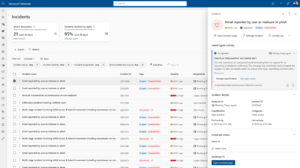Will the Tariff War Impact U.S. AI Growth for Tech Giants Like Google, Amazon, OpenAI, and Microsoft, and How Might India Benefit?

Impact of Tariff Wars on Tech Giants’ AI Innovations
The Current Landscape of AI Development
The rapid advancement of artificial intelligence (AI) has transformed various sectors, driving innovation and economic growth. Major tech companies like Google, Amazon, Microsoft, OpenAI, and Alphabet are at the forefront, investing heavily in AI technologies. However, the escalating tariff war and changing international trade policies pose challenges that could affect their growth and development.
Tariff Wars: An Overview
Tariff wars refer to the imposition of tariffs or taxes on imports by one country against another as a means to influence trade practices. In recent years, tensions among global powers, particularly between the United States and China, have led to increased tariffs. This situation raises concerns about how these actions might influence the booming AI industry in the U.S.
Potential Ramifications for U.S. Tech Giants
Increased Costs: Tariffs can lead to increased costs for manufacturing, research, and development, which can hinder overall growth. For AI firms that rely on hardware and components sourced globally, these increased expenses may hamper their ability to innovate.
Supply Chain Disruption: Many leading tech companies depend on complex supply chains that span across numerous countries. Tariff imposition can result in delays, increased logistical challenges, and ultimately slowed product launches.
- Investment Hesitancy: Uncertain trade policies can make investors wary of putting money into tech companies. As funding is crucial for AI advancement, this hesitancy might stifle new projects and initiatives.
Opportunities for India Amidst Challenges
While U.S. tech giants may face difficulties due to tariff wars, India stands to gain from these developments in several ways.
Growth of India’s AI Sector
Expansion of Talent Pool: With a large and skilled workforce, India has the potential to emerge as a hub for AI development. As U.S. companies look for alternatives to produce AI technologies, India’s expertise can attract investments and partnerships.
Cost-Effective Solutions: Indian firms are known for providing cost-effective tech solutions. As tariffs make U.S. production more expensive, companies may turn to India for outsourcing AI projects and services.
- Collaborative Opportunities: As U.S. firms may seek to establish a presence or partnerships in India, the collaboration can stimulate local startups and tech innovations.
Government Initiatives
The Indian government is instituting a range of initiatives to enhance its AI capabilities:
National Strategy: The Government of India has launched a coordinated approach aimed at boosting AI by emphasizing research, developing infrastructure, and fostering startups.
Funding and Support: Various government schemes provide funding and support for AI projects, encouraging innovation and development in this field.
- Education and Skill Development: Investment in education and training for AI-related skills positions India as a competitive player in the global AI market.
Shift in Global Dynamics
The ongoing tariff battles may indeed change the dynamics of global tech power, with countries like India potentially gaining a stronger foothold in the AI landscape. Emerging markets can leverage this disruption to position themselves as viable alternatives for tech development, reshaping future collaborations and partnerships.
Conclusion
As the U.S. grapples with the ramifications of trade tensions, companies and nations alike are being forced to adapt to an evolving environment. For Indian firms, this presents unique opportunities to carve out a significant role in the global AI ecosystem, while U.S. tech giants must navigate through the challenges arising from these trade disputes.






